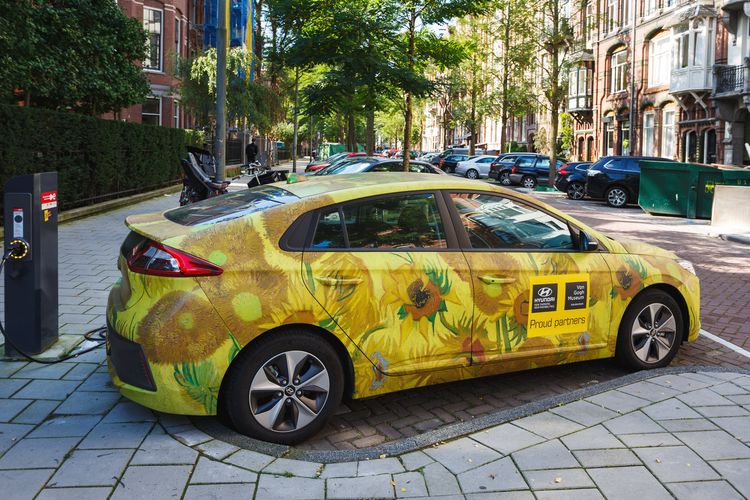How You Can Actually Earn Money Putting Advertising On Your Car
Even as more people are moving toward remote work, many others still have a daily commute back and forth to work. Some use their travel time to unwind, while others hate the stress of the drive. Either way, commuting costs you money. But what if you could use your commute, and all the other times you’re driving, to earn money instead? A bumper-to-bumper advertising wrap on your vehicle might be your answer, as long as you work with a legitimate company.
These mobile billboards involve applying a vinyl graphic wrap over the vehicle’s original paint job. Whether advertising a local business, a popular food or drink product, or a mobile phone company, qualified vehicle owners could make extra money for their everyday driving routines.

How Much Can You Make Advertising Your Car?
The first thing to understand is that the earnings generally don’t come from the advertised companies. Those companies pay advertising agencies who then try to find the best ways to advertise their products or the company itself. The first step is to make sure you choose a legitimate advertising company.
Monthly earnings should range from about $100 to $400 a month. It won’t make you rich, but it can pay down a credit card bill or help cover your fuel costs. Much higher offers, like companies that offer that range weekly instead of monthly, probably indicate it’s a scam.

Avoid The Scams
The first indicator of a swindle is “if it sounds too good to be true, it probably is.” Confidence artists promise unrealistic returns to bring unsuspecting victims into their scams. Watch out for inflated promises posted on job listings or social media or sent by text, email, or calls. These scammers aren’t paid by the companies to arrange advertisements.
The second indicator of something being afoot is if they ask you for money. A legitimate company will pay you, not the other way around. This rule of thumb applies widely, not just to the specific case of car advertising. Scammers make money with their fraudulent offers by duping people into paying them. They will require you to pay for the vehicle wrap up-front, saying they will reimburse you by check or other means. Then, they will either fail to refund the costs or send a check that bounces. Legitimate companies do not charge for the wrap (or roof topper, if you chose that route instead).
Extreme caution is also a good rule for giving out your personal and financial information. Doing otherwise could also lead to the scammers stealing your identity, a double hit. Research companies well and don’t rely on social media reviews that are most likely fake.
Getting Paid To Work With Legitimate Companies
Major advertising groups that are legitimate include Wrapify, Carvertise, Nickelytics, and Uber. Their eligibility, requirements, and payout may differ slightly, so be sure to read the fine print. Most require a minimum age limit and a certain minimum number of driving miles in a given period.
The driving area is often limited to major cities. The vehicle also will have to be in newer, good condition. These two guidelines make sense. The vehicle is helping to represent the advertisement, so they won’t want clunkers. And they’ll want it to be seen, not driven on backcountry roads.
Further, a vinyl wrap should be performed by a professional. That way, it will protect your vehicle rather than harm it. Professional removal will also ensure there is no damage to the vehicle or residue left behind.
It May Affect Your Insurance Rates
While vehicle billboard advertising is not prohibited at any state level, you may want to check your municipality’s laws. It’s also essential to examine the Covenants, Conditions & Restrictions (CC&Rs) if you live in an HOA. CC&R rules may indicate that vinyl-wrapped vehicles are commercial in nature, which could limit your parking choices.
Although vinyl wraps are cosmetic and won’t affect a vehicle’s value, you may want to query your insurance provider for possible increases in policy cost. Some insurance companies will raise rates for increased mileage or greater vandalism risk. Additionally, if governed by your local, rules may exist that you have to purchase commercial vehicle insurance instead. Any additional costs should be measured against the projected income value.
